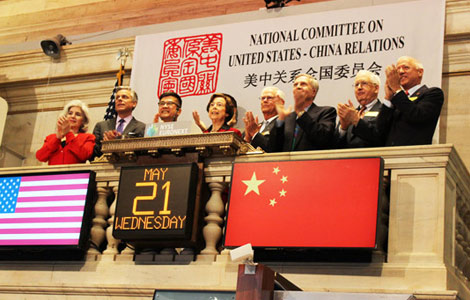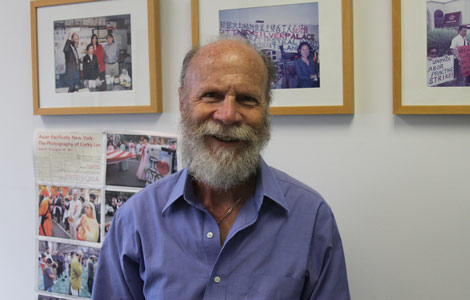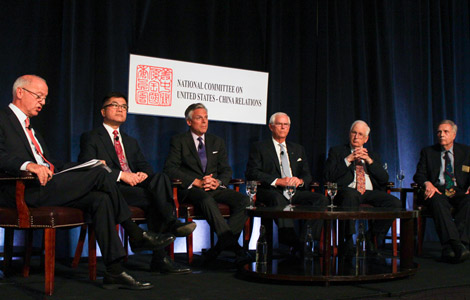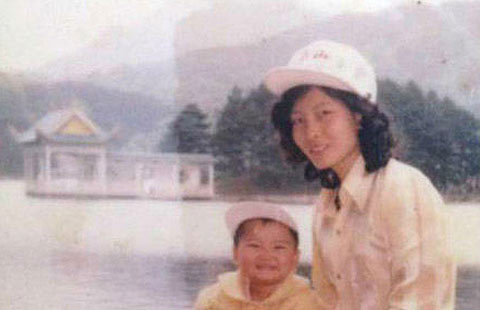Tycoon's trial shows judicial system's resolve
Updated: 2014-05-24 17:15
(Xinhua)
|
||||||||
BEIJING - The significance of the open trial of Chinese multi-billionaire mining tycoon Liu Han is multi-fold.
A local court in central China on Friday sentenced Liu to death for murder and organizing and leading a criminal gang.
He was the founder of Hanlong Group, a conglomerate that spans sectors from mining, energy to real estate. Liu's gang members and three civil servants who harbored Liu's organization received sentences ranging from death to imprisonment.
Firstly, the trial's openness is a sign of Chinese courts embracing the rule of law. The trial strictly followed legal procedures. Ample evidence was collected. Liu and other defendants were guaranteed their legitimate rights during the trial with the freedom to hire their own lawyers and defend themselves. The trial reflects the judicial system's resolve to safeguard social fairness and justice and promote the rule of law that takes facts as the basis and law as the criteria.
Secondly, Liu's case will have a deterrence effect on corrupt officials, and be conducive to the ongoing broad anti-decadence campaign launched by the Communist Party of China (CPC) to improve ties between CPC officials and the public.
Three government officials were sentenced to imprisonment for harboring Liu's mafia-style gang and other power-for-money deals.
The revelation of Lui's connections with officials and the harsh punishments handed to them have shown the intense resolution of the CPC to wipe out officials' corruption. The crackdown on officials' misconduct will deter them from wrongdoing and make the public become more engaged in the war against corruption.
Since Xi Jinping took office as General Secretary of the CPC Central Committee in November 2012, a number of high-ranking officials have been sacked following tip-offs from the public and journalists, which has encouraged the public to become increasingly active in the CPC's anti-corruption drive.
Thirdly, the trial marks another step toward the judicial system's advocacy for transparency, especially via social media. More than 6,000 people attended hearings during the trial, which lasted 17 days and garnered huge media attention.
The verdicts were released by the court on its Sina Weibo account, a twitter-like service, showing Chinese courts emphasis to interact with the public and show its transparency. It is the latest online broadcast of a high-profile case, following the trial of Bo Xilai, former Party chief of Chongqing Municipality, the details of which were broadcast alive via a court Weibo account last year.
Embracing transparency in Internet age was echoed by Chief Justice Zhou Qiang. In a meeting held on Friday, Zhou asked Chinese courts to wield an "Internet mentality" and build fair, efficient, clean, people-oriented and modern courts.
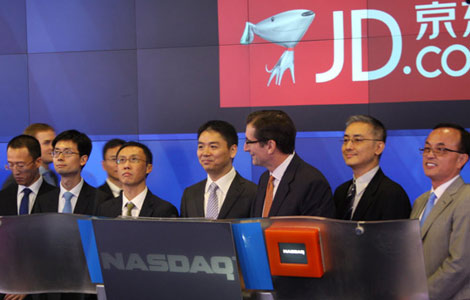
 JD.com makes US debut with $1.78b IPO
JD.com makes US debut with $1.78b IPO
 Lucy Li, at age 11, makes US golf history
Lucy Li, at age 11, makes US golf history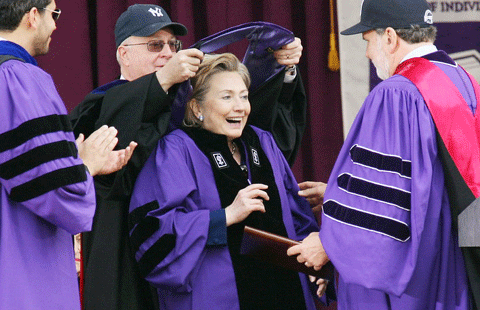
 World leaders wear gowns to collect certificates
World leaders wear gowns to collect certificates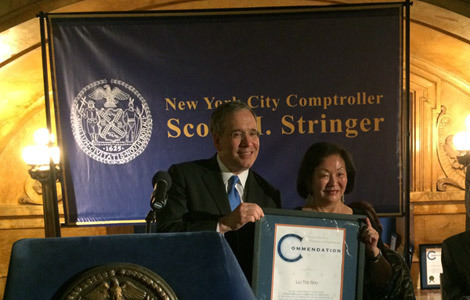
 NYC comptroller honors Chinese businesswoman
NYC comptroller honors Chinese businesswoman
 Chinese farmers' art paintings score at UN
Chinese farmers' art paintings score at UN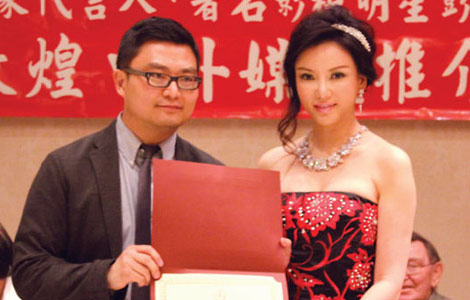
 Star fronts for ancient Chinese city
Star fronts for ancient Chinese city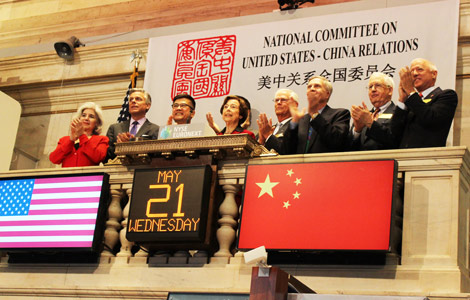
 Former ambassadors ring the closing bell
Former ambassadors ring the closing bell
 Silk road shuffle
Silk road shuffle
Most Viewed
Editor's Picks
|

|

|

|

|

|
Today's Top News
Checks to help ensure cybersecurity
Opinion: The pot calls the kettle black
Russia, China veto draft UN resolution on Syria
US condemns terror attack in China's Xinjiang
2.1m Chinese to visit US this year
Tougher times for foreign tech firms
US hedge fund raises money from wealthy Chinese
Shares of JD.com soar 17% in debut
US Weekly

|

|
